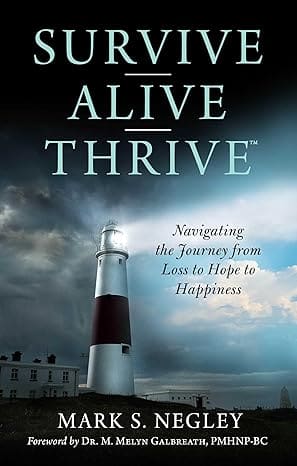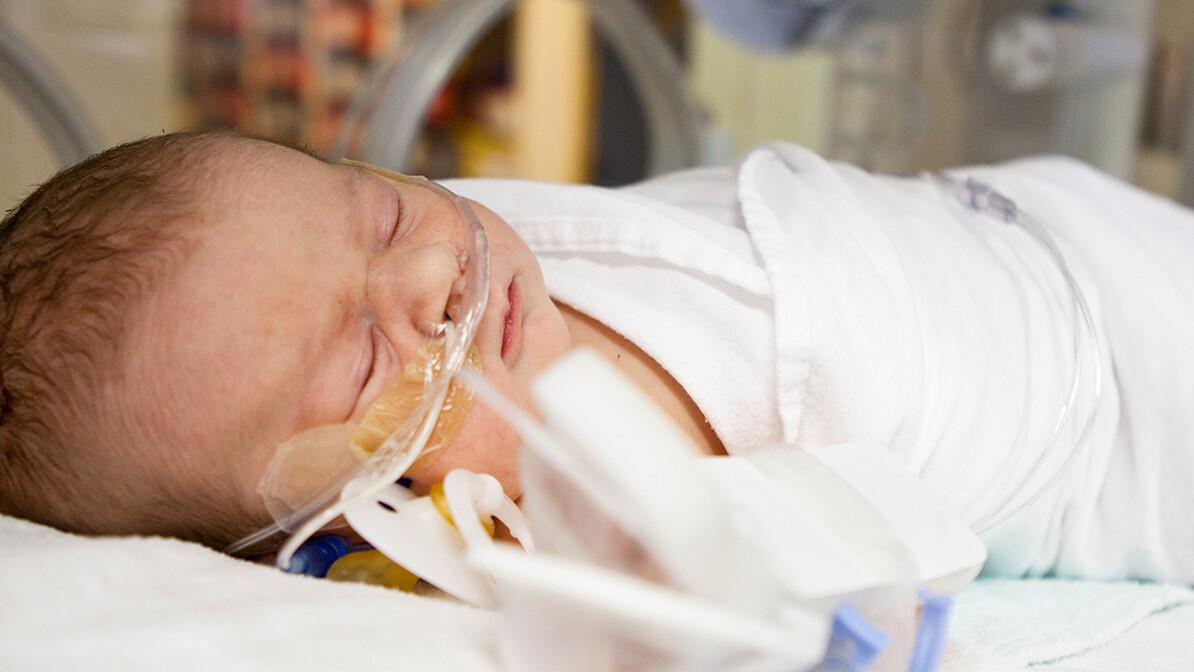
Survive – Alive – Thrive: The Point of Impact
 Excerpt taken from Survive – Alive – Thrive: Navigating the Journey from Loss to Hope to Happiness by Mark S. Negley
Excerpt taken from Survive – Alive – Thrive: Navigating the Journey from Loss to Hope to Happiness by Mark S. Negley
Chapter 6
THE SURVIVE STAGE
PART 1: THE POINT OF IMPACT
At the heart of the Survive-Alive-Thrive model is the point of impact—the moment your world changes—and what I sometimes call “ground zero.” This is usually where I begin interviews with people, by asking them to describe their “ground-zero moment.” It is often glaringly obvious: It’s the phone call from a paramedic, calmly but firmly informing you that your spouse has been in a serious car accident. It’s the midnight knock on your door by two police officers who break the news that someone you love is never coming home again. It’s the terrifying medical diagnosis in the doctor’s office. It’s the night your spouse walks out after twenty-five years of marriage. It’s the day your loved one moves out of the hospital and into hospice. It’s the moment that becomes a dividing line in your life. From now on, you’ll think back on your journey through the filter of what happened before this event and what happened after. Whatever loss you’ve faced, one thing is for certain: your immediate goal is to simply survive.
Where You Are and What You’re Facing
In this chapter, we’re going to explore three areas related to the Survive stage of the grief process. First, we’ll explore three general categories of loss and how they relate and differ from one another. Second, we’ll look at two different categories of circumstances leading to the death of someone we love that can significantly impact our emotional response. And finally, we’ll look at loss in non-death situations that leaves us broken and struggling—things such as being fired, losing a business, experiencing a divorce or broken family relationship, or living in an ongoing situation that is emotionally taxing, such as caring for someone with mental illness or a parent with dementia.
Regardless of the category or root cause of your loss, this chapter will also serve to help identify the unique earmarks of the Survive stage. It’s my hope that through this process, you will be able to place yourself in one of the three Survive, Alive, or Thrive stages. This is a good start to connecting with others who see themselves in a similar situation and to taking the actions steps that are proposed in the next chapter.
Finally, I’ll review several of the most common challenges associated with this stage of grief and what to expect after the initial moment of impact. The goal is to prepare you for what’s ahead on your journey while also helping others in support roles effectively comfort and aid loved ones who are experiencing loss.
Three Categories of Loss
We know from experience that loss comes in a million different shapes and sizes, and it hits from all directions with or without warning. There’s no way to list every specific type of loss, but I have organized these experiences into three categories of loss that will sound familiar:
1. The Midnight Call: This refers to the sudden, unexpected death of a loved one or any other life-changing tragedy that strikes without warning.
2. The Long, Hard Road: This is a loss that occurs slowly over time, most often represented by a loved one’s gradual decline and ultimate death by a terminal illness.
3. Special Circumstances: This is a day-to-day sense of loss associated not with someone’s death but with an ongoing challenge that directly affects your life.
One or more of these types of loss may jump out at you, but let’s take a moment to be clear on exactly what we’re talking about.
The Midnight Call
Losing someone unexpectedly—literally having them with you one day and gone the next—is an indescribable shock. It is hard to wrap your mind around your entire life changing so much, so fast. That’s why I encourage people to make sure they let their loved ones know how much they love them every day. Do not hide your feelings or withhold your love and don’t wait for some future day when the stars align to share your heart. I’ve known too many people who never got the chance they always assumed they’d have.
I’ve been through it myself and have talked with many people who were happily married at breakfast and grief-stricken widows or widowers by dinner, or they were casually talking with their child in the morning and unable to tuck them into bed that night or any night after. While my wife’s death was unexpected and terribly shocking, there are many others I’ve talked with and interviewed who have shared different versions of this same type of loss. People who have lost spouses to heart attacks, car accidents, or other tragedies. Grieving parents who have lost infants or survived their children’s death at the hands of illness, drug overdose, suicide, and accidents. And others who have lost parents, siblings, family members, or good friends to a variety of end-of-life experiences that were heartbreaking and painful to endure. I’ll refer to some of these stories in the following chapters, but you can read or listen to these men and women tell their own full stories of loss and healing on our website. Each paints a picture of a loved one’s sudden death, and each share how they, family, and friends are coping with unexpected loss. The point of sharing these stories is to connect with the experiences of others and to know you are not alone in your journey.
The Long, Hard Road
If you’ve walked with a loved one through the long, difficult process of a terminal illness, you know how hard it is to maintain any sense of hope and joy during the battle. It is devastating to watch someone you care about literally wither away before your eyes. Diseases such as cancer, renal failure, amyotrophic lateral sclerosis, (or ALS, commonly known as Lou Gehrig’s disease), cystic fibrosis, dementia, and multiple sclerosis all seem so cruel. It can feel impossible to find anything to celebrate as you and your loved ones walk this dark road. Because this journey usually takes place over months or years, we often think we’ll be “ready” when our loved one finally passes from this life into the next. However, we’re often still surprised by how hard their death hits us when the time comes and we experience their passing..
Even in such difficult times, there is joy to be found. The thing I’ve heard most often from people who’ve walked the long, hard road with a loved one is how glad they were to have had the time to say goodbye. Even though the patient’s time is limited, there is at least some time for them to put their affairs in order and make sure their families will be taken care of. For their loved ones, there may be time to create new memories, show their love and support, and prepare themselves for life without their spouse, parent, child, family member, or friend. Most importantly, everyone involved may even have the chance to heal broken relationships before it’s too late. A terminal diagnosis can put all these things in perspective and remind us of what we too often forget: our time on this earth is limited, and we will have to live the rest of our lives with the decisions we make today.
Interestingly, in talking with people who have lost someone slowly—sometimes agonizingly so—some have wished for a faster outcome to spare all involved from a painful and inevitable death. On the other hand, those who have lost someone suddenly frequently wish they had been granted more time to spend with their loved one before his or her death. They’re willing to trade the heartache of watching a slow death for the gift of having just one more day together. I can’t tell you how many times I’ve talked to a survivor of one type of loss who wished or wondered what it would have been like had they experienced the other. The goal is that, over time, we are able to count our blessings, accept the journey as one that cannot be changed, and embrace the positives in our personal experience. I will suggest steps to help achieve that goal in the next chapter.
Special Circumstances
When we speak of loss, we most often think of the grieving process following the death of a loved one. However, I know from experience that loss runs far deeper and wider than that. It may seem easy for us to characterize things like a child’s physical disability, a spouse’s ongoing manic or depressed behavior, a parent’s increasing dementia, or a painful divorce as simply “just how life is sometimes.” That’s true, but it isn’t the whole story. The full truth is that these things are examples of devastating losses that we feel deeply in our hearts, minds, and spirits. Just like when news of the death of a loved one is received, there is a moment—a point of impact—when we receive news that changes our lives forever. We shouldn’t minimize these situations. They can bring about grief and mourning just as strongly as a loved one’s death, and, in these cases, we’re often doubly burdened by the ongoing care and attention we’re required to provide. Without careful management and proper respect, these special circumstances can lead us down a dark road of daily mourning from which we feel there’s no escape.
…
Order your copy of Survive – Alive – Thrive: Navigating the Journey from Loss to Hope to Happiness by Mark Negley
Trending Now
Sign up today for your Inspiration Today Daily Newsletter
Supercharge your faith and ignite your spirit. Find hope in God’s word. Receive your Inspiration Today newsletter now!
Mark Negley
Mark Negley’s passion for helping others through difficult life experiences has inspired him to serve as Founder and Executive Director of Survive-Alive-Thrive. His commitment to his Christian faith has empowered him to share the power of God’s love by facilitating a variety of ministries, speaking at public and private events, hosting a podcast, and writing his book, Survive-Alive-Thrive. Mark is a widower and the proud father of his grown son, Andersen. He was blessed to re-marry in 2020, and currently resides in Franklin, Tenn., with his wife, Melyn. Learn more at survive-alive-thrive.org
Related Articles
February 13, 2026
How to Find Joy in the Midst of Sorrow
Sorrow has a way of arriving uninvited—and staying longer than we expect. Loss reshapes our lives,…
January 30, 2026
What’s Happening to Your Family?
Families around the world are facing challenges that feel heavy, confusing, and unfamiliar. This…
January 14, 2026
How to Build a Stronger Marriage
When the same arguments keep resurfacing and distance quietly grows, it’s easy to feel stuck. If…
August 23, 2025
If God Is a Loving God, Why Is There So Much Pain in This Life?
Why is there so much pain in this life? This heartfelt article wrestles with that question through…
Next Steps To Strengthen Your Walk
Inspiration Today Newsletter
Supercharge your faith and ignite your spirit. Find hope in God’s word. Receive your Inspiration Today newsletter now!
Christian Articles
Find articles to strengthen your walk and grow your faith. We have a wide range of topics and authors for you.
Submit A Prayer Request
We are here for you. Simply click on the button below to reach us by form, email or phone. Together we will lift our hearts and voices with you in prayer.





